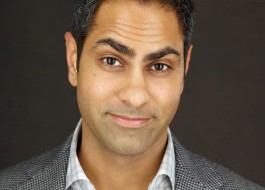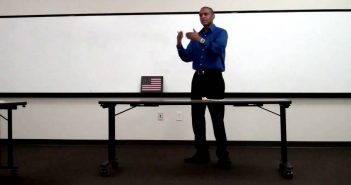 Francisco Osorio/Flickr
Francisco Osorio/Flickr
Keith Ferrazzi's bestselling career guide "Never Eat Alone" is filled with several hundred pages of professional networking insight, but there's one small point that can't be overlooked.
"The most memorable gifts I have ever received are those whose value could not be measured in terms of dollars and cents," Ferrazzi wrote. "They are the heartfelt letters, e-mails, and cards I receive from people thanking me for guidance and advice."
He noted that if you send a decent follow-up message after meeting with someone, you'll distinguish yourself from "95 percent of your peers," since "the fact is, most people don't follow up very well, if at all."
Ferrazzi even made his point in all-caps: "FOLLOW-UP IS THE KEY TO SUCCESS IN ANY FIELD" — and that doesn't mean you reserve the follow-up message for job interviews.
Ferrazzi is the founder and CEO of Ferrazzi Greenlight, a management consultant firm with major clients like General Motors and American Express, and he's constantly meeting with new and potential clients.
Here's an example email he would send to one of those potential clients after their first meeting, where they got to know each other a bit. Note that he "reiterates the commitments everyone has made, and asks when a second follow-up meeting can be arranged":
"It was great talking to you over lunch yesterday. I wanted to follow up with some thoughts we discussed yesterday. I believe Ferrazzi Greenlight can serve the interests of your company, and I've had time to work out the finer details.
"The next time I'm in town, I'd love to get on your calendar and chat for five or ten minutes."
The above is just a skeleton, but Ferrazzi recommends adding some personality to your message, such as an allusion to something you discussed, a discovered shared interest, or a joke that came up. Some more tips:
• Send your email within 24 hours of meeting, but don't wait too long. If you grabbed drinks, send your message the next morning.
• Express gratitude.
• Be brief.
• Focus on what you can do for them.
• If someone connected you to this person, send a follow-up to the referrer, as well.
The most important thing, Ferrazzi wrote, is that you make sending these follow-ups a habit. The small time investment will go far in your career.




